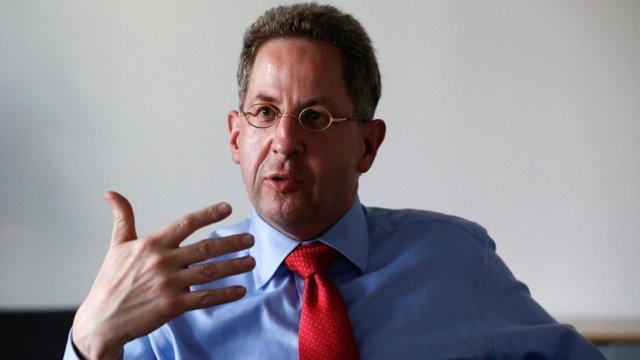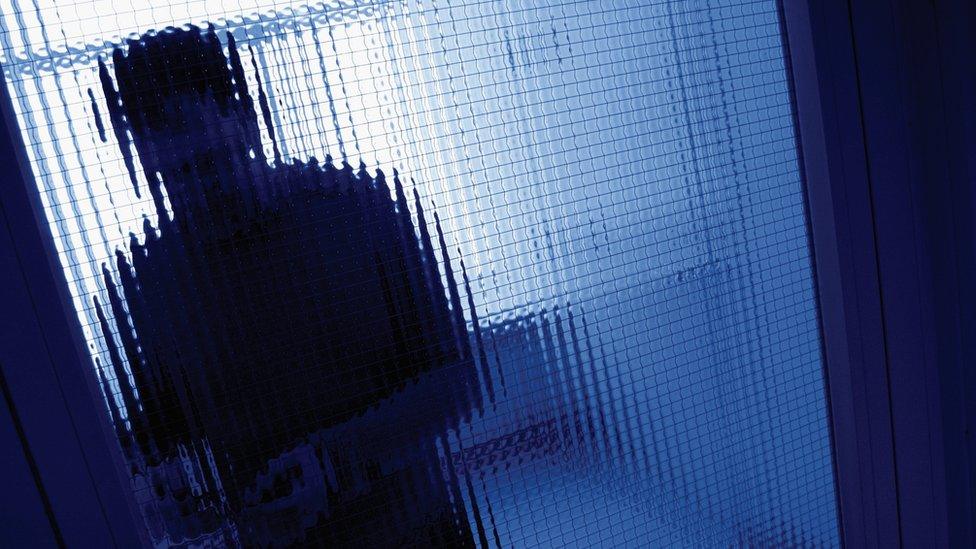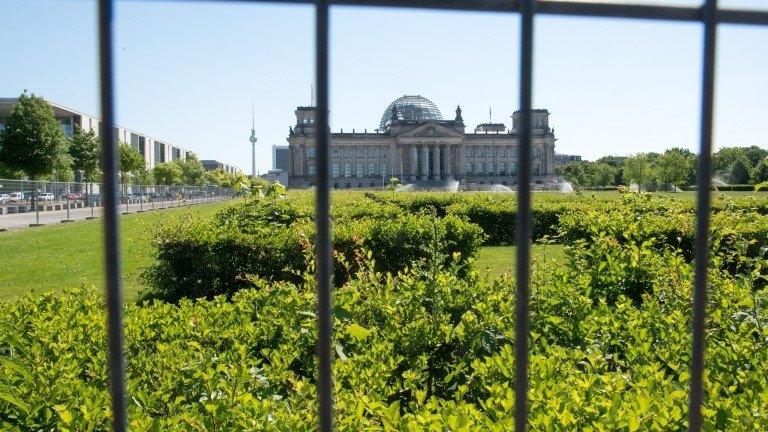Russia 'was behind German parliament hack'
- Published

Hackers working for Russia are behind ongoing attacks against German state organisations, said the BfV boss
Germany's domestic intelligence agency has accused Russia of being behind a series of cyber attacks on German state computer systems.
The BfV said a hacker group thought to work for the Russian state had attacked Germany's parliament in 2015.
This week it emerged, external that hackers linked to the same group had also targeted the Christian Democratic Union party of Chancellor Angela Merkel.
Russia has yet to respond publicly to the accusations made by the BfV.
Sabotage threat
BfV head Hans-Georg Maassen said Germany was a perennial target of a hacker gang known as Sofacy/APT 28 that some other experts also believe, external has close links with the Russian state. This group is believed by security experts to be affiliated with the Pawn Storm group that has been accused of targeting the CDU party.
Sofacy/APT 28 is believed to have been formed in 2004 and has been blamed for a wide range of attacks on both governments and financial institutions.
The attacks on German state organisations and institutions were carried out to gather intelligence data, Mr Maassen said.
He added that his agency had been monitoring the group for years. He said some of its hack attacks on Germany had been ongoing for more than a decade.
The attack on the German parliament sought to install software, external that would have given the attackers permanent access to computers used by staff and MPs. Other attacks involved gathering data about critical infrastructure such as power plants and other utilities, Mr Maassen said.
"Cyber space is a place of hybrid warfare," he said. "It opens up new operating areas for espionage and sabotage."
- Published30 March 2016

- Published11 June 2015

- Published5 June 2015

- Published31 December 2015
